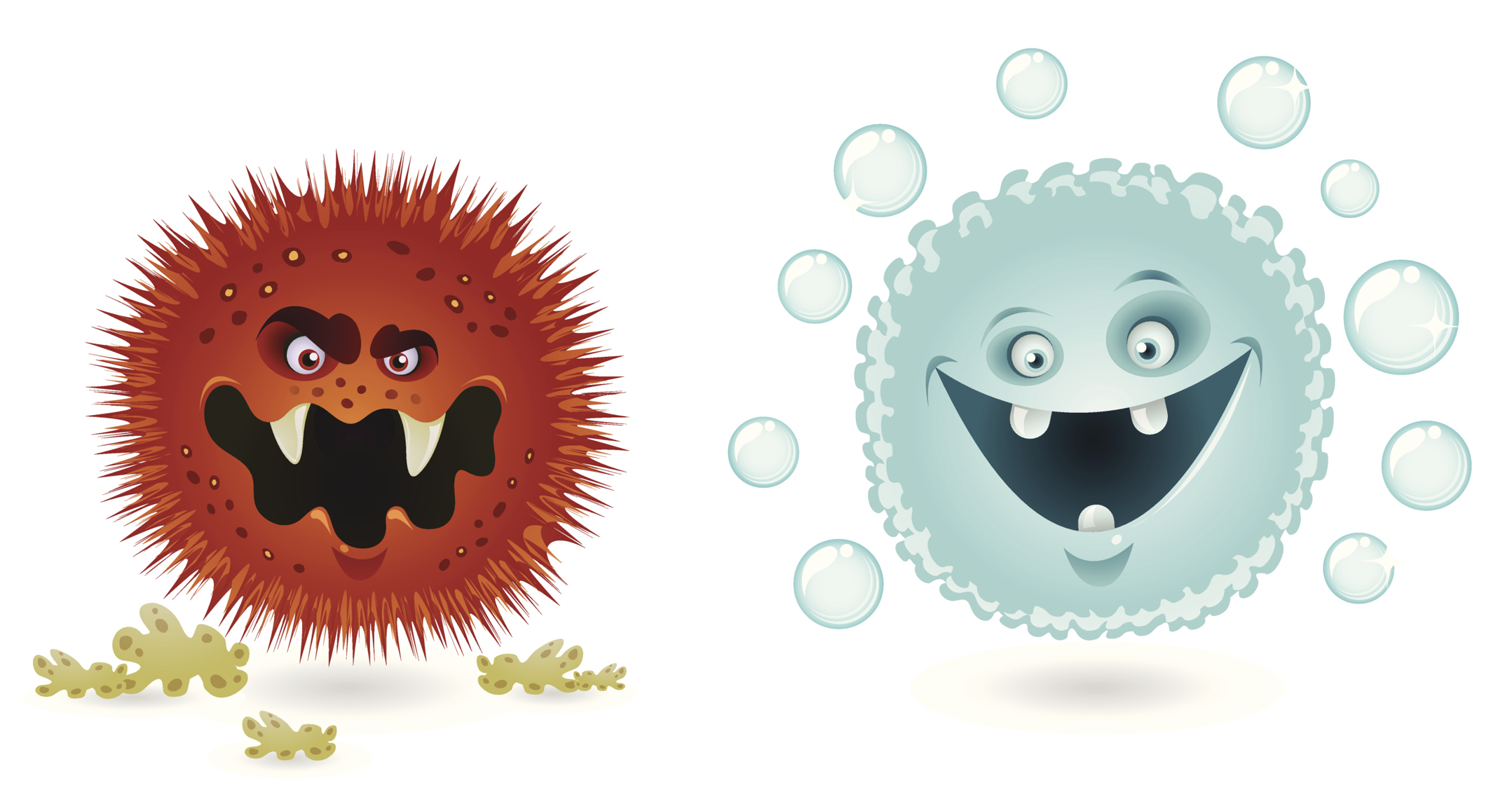Most of you have heard of Probiotics and many of you take them because you are told that they are good for you, in fact according to a recent survey, besides vitamins and minerals probiotics are the 4th most popular dietary supplement.
Taken daily, why, what are probiotics, how do they work and what are they good for?
The current definition, which comes from an expert panel of scientists working on behalf of the Food and Agriculture Organisation of the United Nations (FAO) and the World Health Organisation (WHO), is ‘Live micro-organisms that, when administered in adequate amounts, confer a health benefit on the host’. In other words, probiotics are friendly living microbes that help you to stay healthy.
We talk about probiotics as ‘good bacteria’ which is correct for bifidobacteria and lactic acid bacteria but there are certain yeasts from the Saccharomyces family that also fall under the probiotic umbrella.
Talking about microbes, did you know that you carry about 4 pounds of micro-organisms in your gut? These are bacteria, yeast and fungi and your digestive tract houses roughly 100 trillion microbes. Considering there are over 30 trillion cells in your body, it means that you have over 3 times more microbes than cells and the genes of these microbes exceed your human DNA by a factor of 100!
I have been talking about the micro-organisms that live in the gut, but there are other microbial communities that live in the mouth, the skin and the reproductive system.
So, what do probiotics do, why do they make you healthier?
Most importantly they support a healthy balance of gut bacteria. We all have good and bad bacteria in our gut fungi and yeasts, but as long as they are in the correct proportions they create a healthy balance. These microbes can be challenged by stress, poor diet, medications especially antibiotics, travelling, ageing, environmental toxins, smoking, alcohol and a lot more which then cause ‘dysbiosis’ or an unhealthy imbalance.
There may be a disproportionate amount of bad bacteria, an overgrowth of fungal microbes, or not enough good bacteria, which leads to digestive problems, compromised blood sugar regulation, obesity and many more health concerns. Probiotics are the protection we need against ‘dysbiosis’. They keep potential harmful micro-organisms in check and restore the balance of healthy microbes. They support a healthy digestive tract by helping digestion and absorption and they promote bowel regularity.
They are vital for a healthy immune system, reinforcing gut barrier function and they help support a healthy inflammatory response. 70% of your immune system is in your gut so it is really important to make sure it has the correct micro-organisms and that it is kept healthy.
Other benefits that are not so obvious with probiotics are that they reduce stress and anxiety therefore boosting mood. They improve cognitive function, help with weight management, improve appetite control, enhance recovery and sports performance and support healthy blood pressure and cholesterol levels.
So we can see how important probiotics are but where can you get them? The best dietary sources are fermented foods such as yoghurt, kefir, kombucha and fermented veggies such as sauerkraut, and being a good source of probiotics is just one of the health benefits of sauerkraut. They include strains from the Lactobacillus, Streptococcus, Enterococcus, Lactococcus, Bifidobacterium and Saccharomyces families. They break down carbohydrates and make them easier to digest. However if you are yeast sensitive these foods can make you feel worse so a good probiotic supplement is better, but not all probiotic supplements are created equal!
What is the best probiotic to take?
Well, probiotics must be alive when you take them so look for those that are protected by microencapsulation technology that wraps around the probiotics in an acid-resistant coating, protecting the probiotics from stomach and bile acids.
Certain probiotics such as strains from the Bacillus family are naturally heat-stable and acid-resistant and if you are looking for a broad-spectrum for a healthy digestive system and a healthy immune system, a multi-strain probiotic is great.
The total amount of probiotics is very important and they are measured in colony forming units (CFU). It is generally agreed that a minimum of 1 billion is a good starting point.
It is important to have a prebiotic within your probiotic supplement. Prebiotics are a source of food for probiotics to grow, multiply and survive in the gut. Prebiotics are fibres which cannot be absorbed or broken down by the body and therefore serve as a great food source for probiotics, in particular the Bifidobacteria genus to increase in numbers.
Prebiotics occur naturally in our diet and can be found in Jerusalem artichokes, garlic, chicory and onions amongst other things. However to have a bifidogenic effect, increasing the levels of friendly bacteria you would have to eat large quantities of these foods so to take a probiotic which contains prebiotics is probably much easier. Fructooligosaccharides are a common prebiotic found in may supplements.
The probiotic that I prefer is one that I have used for many years and has helped many of my patients to improve their health*. It is a multi-strain probiotic with a synergistic combination of 12 beneficial bacteria plus saccharomyces boulardii and the prebiotic fructooligosaccharides (FOS). This blend aids in the digestive process, supports a healthy intestinal barrier and helps to build the immune system sustaining healthy microflora.
There are two types of probiotics that work together to alter the microbial balance of their environment—resident and transient strains. Both are vital to maintaining a normal intestinal barrier due to their ability to change the pH level of their environment by secreting lactic and/or acetic acid. This prohibits the growth of pathogens and allows the beneficial bacteria to attach to the intestinal mucosa and re-colonise.
*For further information or to order this product please contact us on 01462 893586 or baldock@wyndham-centre.co.uk

